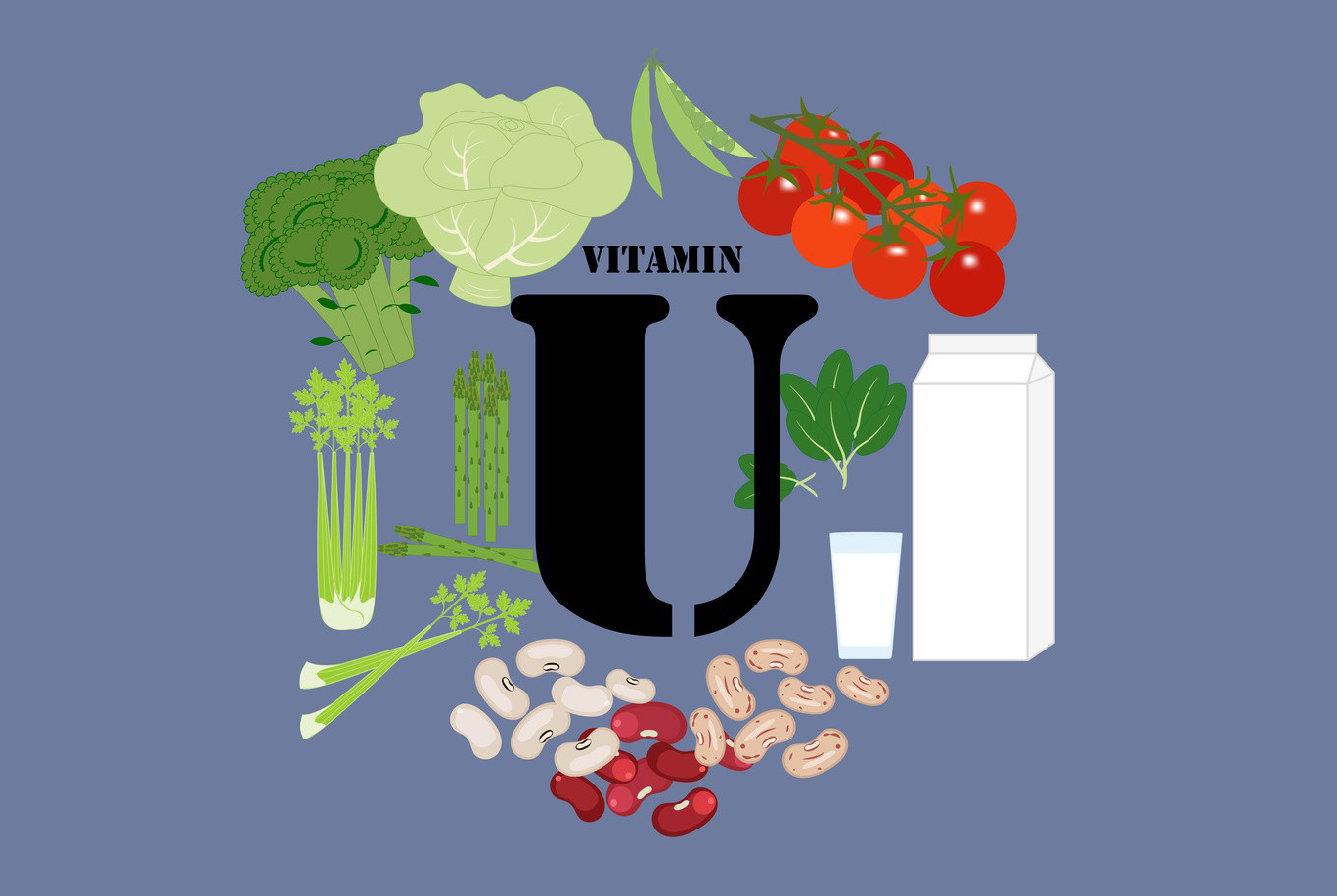Vitamin U is not technically a true vitamin in the classic sense, as it does not meet all the criteria for a vitamin (such as being essential in small amounts for the body’s normal growth and function). The term “Vitamin U” was coined in the 1950s to describe a compound that was believed to have health benefits, particularly for the stomach and gastrointestinal system.
Origin and Nature of Vitamin U:
1. Discovery: Vitamin U was discovered by Dr. Garnett Cheney in 1952. It was initially thought to be a type of vitamin, hence the name “Vitamin U.” The “U” stands for “ulcer,” as it was found to have healing effects on peptic ulcers.
2. Chemical Nature: Vitamin U is primarily composed of S-methylmethionine, which is a derivative of the amino acid methionine. S-methylmethionine is also found naturally in certain vegetables.

3. Function: While its exact biological role remains unclear, it has been suggested that Vitamin U helps maintain the health of the digestive system, particularly by promoting the healing of ulcers and reducing inflammation in the stomach lining. It may also contribute to the overall health of the gastrointestinal tract.
Introduction to Vitamin U:
1. Dietary Sources: Vitamin U is not commonly found in concentrated amounts in typical diets but can be found in cabbage, especially raw cabbage juice. Other vegetables like kale, spinach, and broccoli may also contain small amounts of Vitamin U. The raw form of cabbage is particularly emphasized because cooking can reduce the amount of S-methylmethionine.
2. Health Benefits: While it is not officially recognized as a vitamin (since it is not essential for all individuals and its benefits are still being studied), it is often promoted for its potential to:
- Aid in ulcer healing.
- Protect against gastric irritations.
- Help with digestion and reducing acid reflux.
- Alleviate some symptoms of inflammatory gastrointestinal disorders.

Modern Perspective:
Vitamin U is not commonly included in modern dietary recommendations, and it is not considered an essential nutrient by most health organizations. However, its historical connection to digestive health persists, and some alternative medicine circles still recommend it for treating digestive issues.
In summary, Vitamin U is more of a compound with potential digestive health benefits rather than a traditional vitamin. Its origin stems from cabbage and related vegetables, and while it shows promise, further research is needed to fully understand its therapeutic uses.
